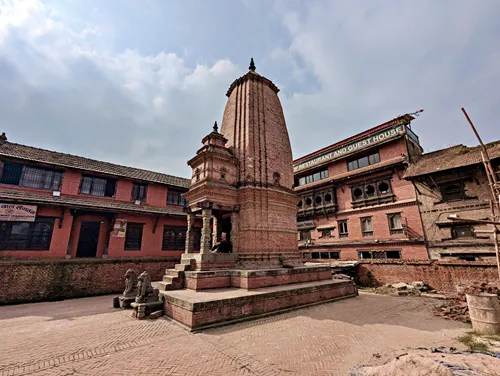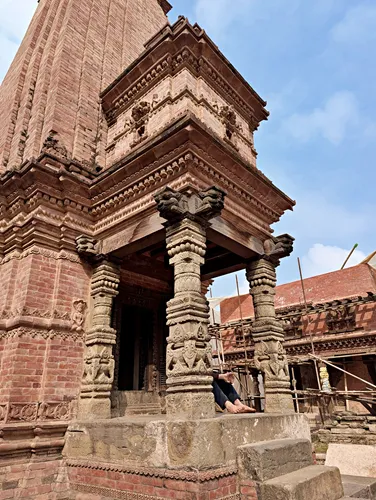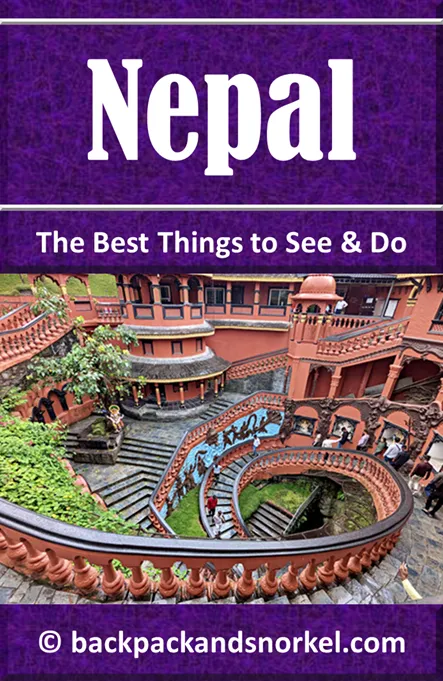Badrinath Temple: Your Guide to a Unique Shrine in Bhaktapur - Nepal Purple Travel Guide
(map, reviews)
This is Premium Content! To access it, please download our
Backpack and Snorkel Purple Travel GuideBadrinath Temple is part of the group of four Char Dham temples, which are the local Bhaktapur Durbar Square version of the four Char Dham temples in India:


Here at Backpack and Snorkel Travel Guides, we typically promote self-guided walking tours.
But we realize that not everybody likes to walk by themselves in a foreign city. So, just in case that you rather go with ab guide: NO PROBLEM! Please see the Viator tours below.
free GuruWalk tours
paid Viator tours
Historic and Cultural Significance of Char Dham
The term ‘Char Dham’ literally means ‘four abodes’ or ‘four seats’ in Hindi and Sanskrit. The term refers to the four major pilgrimage sites in India. However, the concept has been adopted and localized in other regions, including the Kathmandu Valley.
In Bhaktapur Durbar Square, the Char Dham temples are a set of four smaller temples located at the western end of the square. These temples were commissioned by King Yaksha Malla in the 15th century with the specific intention of providing spiritual merit to those who were unable to undertake the arduous journey to the original Char Dham pilgrimage sites in India.
The Origin of the Name Badrinath Temple
The temple is named after Badrinath, one of the most revered forms of Lord Vishnu, whose principal shrine is located in the Indian Himalayas. In Hindu tradition, Badrinath is a divine protector and preserver of the universe. The name ‘Badrinath’ itself means ‘Lord of Badri’, referring to a mythical forest of berries (badri) where Vishnu is said to have meditated.
By naming the temple after this sacred form, the people of Bhaktapur brought a piece of the Himalayan spiritual landscape into their own city. This local version of Badrinath Temple reflects the interconnected religious traditions across South Asia and highlights Bhaktapur’s role as a cultural and devotional hub.
Architecture of Badrinath Temple
Unlike the towering pagoda-style temples that dominate Bhaktapur Durbar Square, Badrinath Temple is built in the shikhara style, an architectural form that resembles a mountain peak. This style, inspired by North Indian temple architecture, emphasizes verticality and spiritual ascent. The temple’s elegant stone spire, carved details, and serene atmosphere offer a contrast to the square’s busier attractions, making it a peaceful spot for reflection.
Back to your self-guided tour
Author: Rudy at Backpack and Snorkel
Bio: Owner of Backpack and Snorkel Travel Guides. We create in-depth guides to help you plan unforgettable vacations around the world.
Other popular Purple Travel Guides you may be interested in:
Like this Backpack and Snorkel Purple Travel Guide? Pin these for later:





